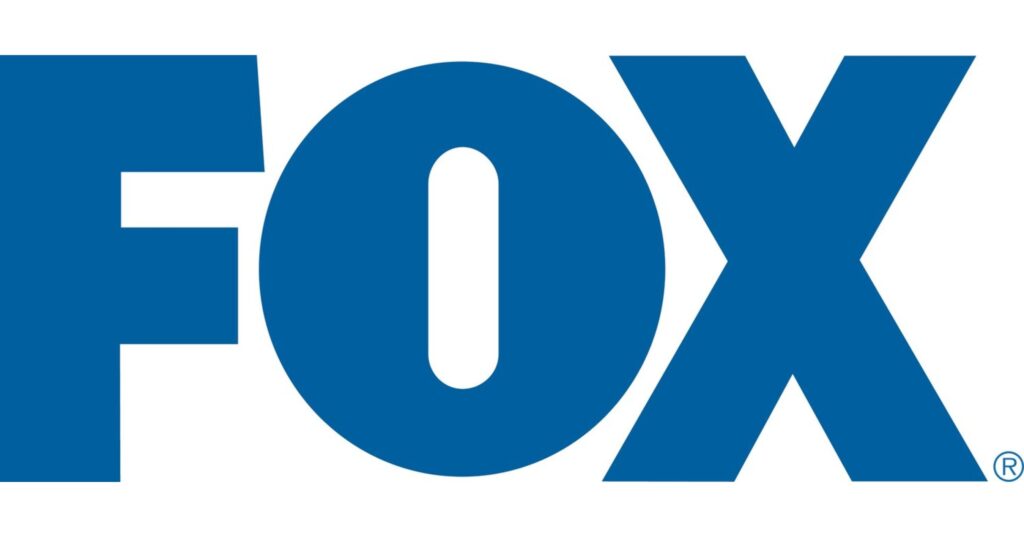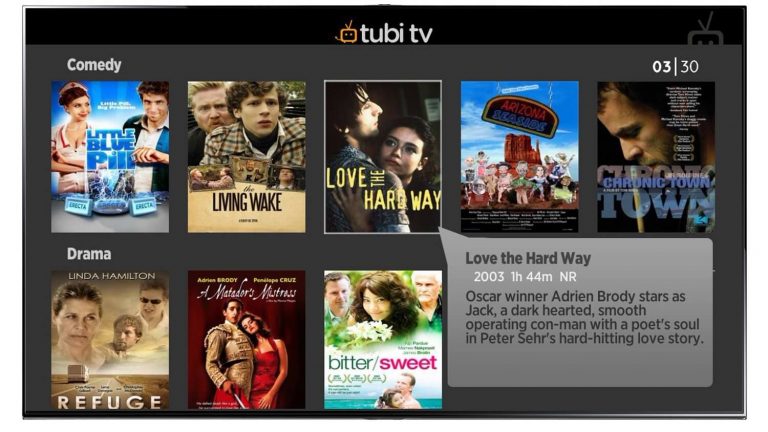The Executive Summary
A streaming service called Tubi TV offers free on-demand video content. Over 35,000 movies and TV shows are available to users.
By inserting advertisements into the video content or switching between them, Tubi TV generates revenue. As a result, it depends on the advertising business model.
The company, which debuted in 2014, has developed into one of the top over-the-top streaming platforms. Fox Corporation purchased Tubi TV in March 2020 for $440 million.
Tubi TV: What Is It?
Users of the over-the-top (OTT) streaming service Tubi TV can access on-demand video content like movies and TV shows.
Users are not required to pay for a monthly subscription in order to access the content, for example. Commercials are used to fund Tubi TV.
Tubi TV does not produce its own content. To serve their licenced content, the platform instead collaborates with companies like Lionsgate, MGM, or Paramount.
With more than 35,000 films and TV shows from 250 content partners, Tubi TV APK asserts to have one of the largest content libraries.
Over 40 categories of content, including action, drama, horror, romance, and many more, are available for users to consume.
You can access Tubi TV content without creating an account. The viewing experience is therefore comparable to cable television.
However, doing so can greatly enhance the overall experience. Users who sign up for the free Tubi TV Activate account will be able to perform a few extra tasks, such as adding recommended content to their streaming queue and creating a queue of videos to watch. Additionally, users can pick up where they left off with the content they were viewing.
The platform’s website, its mobile apps (available for Android and iOS), or other streaming devices like the Amazon FireTV, Google’s Chromecast, or Roku can be used to access Tubi TV.
Users must reside in Australia, Canada, Mexico, New Zealand, or the United States in order to access the content.
A Short History Of Tubi TV
Farhad Massoudi and Thomas Ahn Hicks founded Tubi TV in 2014; it has its main office in San Francisco, California.
Massoudi worked in a variety of engineering-related roles before founding Tubi TV at organisations like Yahoo and SocialMedia.com (which was acquired by LivingSocial).
He established adRise, his first business, in 2010. For connected devices and TVs, adRise was a platform that allowed publishers to operate a real-time bidding exchange for their available ad space.
The platform collaborated with some of the biggest content providers in the world, such as Roku or Yahoo TV.
Along the way, Massoudi and Hicks, who had already contributed to the co-founding of adRise, decided it was time to change the direction of the company.
Players for advertising video on demand (AVOD) were just starting out at the time. Launched in 2011, Xumo TV was followed by Pluto TV three years later.
Conveniently, Tubi’s team already had a solid understanding of how on-demand video advertising functions. Additionally, it had already assembled a team of 15, so it could devote the necessary resources to quickly build out the product.
AdRise unveiled Tubi TV to the general public in April 2014. Its platform was introduced with 125 content partners and 20,000 licenced TV shows and movies to immediately appeal to consumers.
Additionally, a number of devices, including the Apple TV, Roku, Amazon Fire TV, Microsoft Xbox, and Google Chromecast could already access its platform.
One of the company’s major achievements was when it was able to secure a $6 million strategic investment from companies like Lionsgate and Metro-Goldwyn-Mayer in November 2015. (MGM).
Both parties committed to offering a range of excellent content for the platform as part of the agreement. This included American Psycho, Fargo, and Rain Man, among other films.
The company’s introduction of its Content Personalization Engine has become another significant growth factor. By incorporating a set of machine learning algorithms, Tubi TV was able to provide personalised content to each user by taking a page from Netflix’s playbook.
The implementation increased Tubi’s viewership by more than 20% while distinguishing its platform from rival services that hadn’t yet incorporated machine learning technology.
Despite the fact that Amazon and Walmart both launched competing AVOD services in 2018, Tubi TV continued to expand its partnership network and subscriber base. For instance, Tubi TV launched on Comcast’s X1 platform in November 2018, giving it access to an additional 20 million viewers.
It had accumulated enough content on its platform by 2019. It was therefore time to grow internationally. In January 2019, Tubi TV entered its first international market, Canada. Australia came next after six months.
Therefore, it was not shocking when rumours about Tubi TV being a desirable acquisition target started to circulate. In January 2019, Viacom purchased Pluto TV for $340 million. A year later, Comcast paid an undisclosed sum to acquire Xumo TV.
These growth initiatives effectively doubled Tubi’s content library. At the same time, viewership went up 100% year over year. The platform has grown as a result of additions like Tubi Kids, a kid-friendly section of its platform, and Tubi en Espaol.
In 2021, Tubi TV kept growing its selection of media. For instance, it added Fox Sports and other channels’ live sports streaming in August.
With the debut of the Jon Lovitz-starring television series Tales of a Fifth Grade Robin Hood a month later, it also unveiled its first original programming content. It added support for more platforms, such as Windows 11 and LG Smart TVs, to end the year.
More than 50 million people now watch Tubi TV each month. The business recorded 3.6 billion streaming hours just in 2021.
How does Tubi TV generate revenue?
Through advertising, Tubi TV generates revenue. During content transitions or while watching a video, advertisements are displayed.
Four to six minutes of advertising are typically included every 60 minutes of video content.
As a result, the ad load is significantly lower than it would be on conventional (linear) television. There are typically at least 10 minutes of commercials on linear TV every hour.
Every time a user sees an ad, Tubi makes money (also called an impression). Following that, the money is split with the content licenser, such as MGM or Lionsgate.
The agreement between Tubi TV and the company it licenced the content from will determine the actual revenue share. For comparison, YouTube (or Google, for that matter) keeps 45% of all revenue, while creators on the platform receive a whopping 55% of it.
For the purpose of selling available ad space, Tubi TV collaborates with Yahoo’s demand-side platform (DSP). In order to sell advertisements to businesses directly, Tubi also has its own ad sales team.
Compared to traditional linear TV, advertising on Tubi TV offers better trackability for its advertising partners, allowing them to assess their return on investment. This is especially valid whenever a user decides to sign up for a Tubi account.
In order to attract more advertisers to the platform, Fox had previously stated that it would provide extremely lucrative commercial packages for them (by bundling them with Fox’s TV lineup).
A new advanced frequency management tool for advertisers was one of the significant investments Tubi had made to advance its advertising technology. Advertisers can avoid serving the same advertisement repeatedly thanks to the tool.
Funding, revenue, and valuation for Tubi TV
Crunchbase reports that Tubi TV has raised $26 million in total through four rounds of venture capital funding.
BluePointe Ventures, Cota Capital, DHVC, Streamlined Ventures, IT-Farm, Foundation Capital, and many others are notable investors.
The Fox Corporation bought Tubi for $440 million, which was the last time its valuation was made public.
Fox CEO Lachlan Murdoch declared in November 2021 that Tubi TV’s revenue for 2021 would be greater than the sum Fox paid for it.
Who Is the Owner of Tubi TV?
Fox Corporation is the owner of Tubi TV. In March 2020, Fox announced the $440 million acquisition. It was finished in May 2020, two months after that.
It was not stated during the announcement whether the acquisition had been paid for with cash or with stock compensation.

For Fox, the purchase has undoubtedly been beneficial. As previously stated, in 2021, Fox paid more for Tubi TV than it made in revenue (but not profit).
Additionally, Tubi TV increased by more than 40% from 2020 to today. The original content, new hardware support, and additional content partnerships all contributed to this.
Being a part of Fox helped Tubi TV close those deals, and it will continue to do so in the future.
Conclusion
On Tubi’s free streaming platform, there is a surprisingly large selection of vintage and unusual movies and TV shows. Free-to-air television exposes you to more advertisements than a B-movie on Tubi TV, despite the fact that it is supported by commercials.



